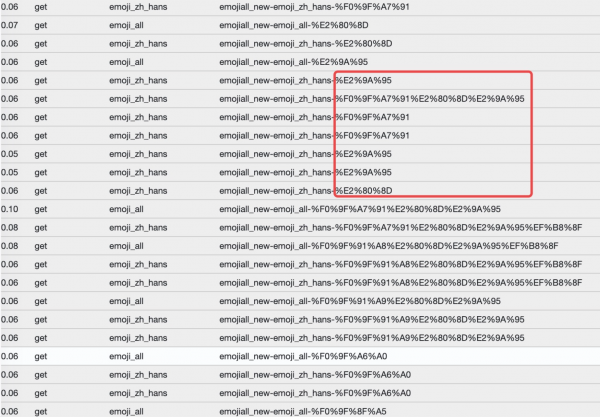今天同事需要清理memcache中某种前缀的key的值,但memcache没有专门的这种命令,我帮忙在网上找了一段程序:
How about this function in php:
function deletekeysbyindex($prefix) {
$m = new Memcached();
$m->addServer('localhost', 11211);
$keys = $m->getAllKeys();
foreach ($keys as $index => $key) {
if (strpos($key,$prefix) !== 0) {
unset($keys[$index]);
} else {
$m->delete($key);
}
}
return $keys;
}
Deletes keys beginning with $prefix and returns a list of all keys removed. I ran this on 30,000+ keys just now on a shared server and it was pretty quick - probably less than one second.
同事采用了这种办法,可以列出、删除某种前缀的key的键值对,不过打印的时候,key中包含的中文没有显示,不确定是否正确。
我在网上去搜了一些资料,中文的资料比较少而且说法不一,多数说需要对中文进行编码再做key,英文资料多一些,也有些说法不一,可能是memcache新老版本的问题,最后看到memcache只有这几种不能作为key:Keys cannot have spaces, new lines, carriage returns, or null characters. 其它的应该都可以。
https://github.com/pinterest/pymemcache/issues/122 这里说: memcached supports unicode for both keys and values. Example run against a local memcached. So we don't need to do any hashing for unicode keys. $ echo -e 'add my☃ 0 60 11\r\nhello ☃ld\r' | nc localhost 11211 STORED $ echo -e 'get my☃\r' | nc localhost 11211 VALUE my☃ 0 11 hello ☃ld END
我自己检查了以前在一个drupal网站中使用emoji做key的一部分的情况,memcached是可以自动进行urlencode编码的:

最后同事直接在PHP程序中逐段调试,也证明可以直接用中文作为key的一部分,add和get都是OK的。👌
这也说明一个问题,网上资料不一定靠谱,最终还是要自己实践来证实!

评论